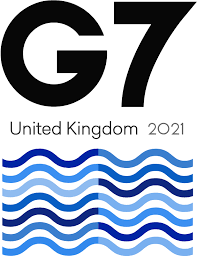The region’s largest business group has urged the Prime Minister to help create a more sustainable future for business at this weekend’s G7 summit in Cornwall.
The British Chambers of Commerce South West (BCCSW) – which includes Bristol Chamber of Commerce parent group Business West – has written to Boris Johnson ahead of the global gathering urging him to show leadership by supporting a move to an international trading system that operates more in harmony with the environment. 
The letter to the Prime Minister came after BCCSW hosted a virtual ‘C7’ conference of 230-plus business leaders and academics from around the world ahead of the G7, which started today and lasts until Sunday.
Business West managing director Phil Smith joined the C7 debate on what business should demand of the G7 governments at the landmark summit.
Mr Smith, pictured, said: “The C7 conference was focused on the challenges and opportunities of a truly ‘blue and green’ economy.
“It illustrated the global nature of the climate challenge and the unique ability of the Chamber of Commerce movement to engage the world’s business community in finding answers.”
BCCSW chair Stuart Elford added: “The C7 conference was significant. Global business leaders united in their asks to governments. It is important that the UK plays a leading role in enabling businesses to make the change that will make our future a more sustainable one. 
“We need to be able to trade freely around the world in the most sustainable way possible. To do that, businesses need help, guidance and a path to follow. Now, with the eyes of the world on us, is an opportune time to start on that path.
“The South West has an incredible opportunity to play a global role in sustainable trade that works in harmony with the world around us – we are uniquely positioned to do so. Business wants to help and BCCSW is prepared to work with the government to achieve a more sustainable future.”
The event arrived at five key demands for the Prime Minister, which were included in the letter to Downing Street:
1. Show businesses a path to a more sustainable future. Guide business to understand the steps needed. Business can help provide the solutions as long as they understand the route needed.
2. Balance regulation with incentive. There is a role for commitments and target setting for both government and business, but there must be a combination of carrot and stick, incentivising and helping business to take the necessary steps. Business needs support, especially as it reels from the impact of the pandemic and adjusts to post-Brexit international trade, so there should be no additional cost burden imposed upon it.
3. Show leadership. Be strong and bold, working closely with like-minded partners who share our values and holding to account those countries that do not. Show solidarity with our G7 partners with a consistent approach to fossil fuels and waste management and reach out to help other countries work towards our goals. Work in partnership with businesses across every sector to help drive us all towards sustainable solutions.
4. Be fair and free. People and businesses deserve a level playing field that gives opportunity to all. Ensure that the poor are not excluded by digital poverty and make sure that international corporations pay the same tax as local businesses. If 100 corporations are responsible for 71% of emissions, then do not punish those businesses that are trying their best but go after those that are damaging the planet the most. Allow trade freely around the world and enable it to happen sustainably.
5. Innovate and inform. Share best practice and seek out new ways to drive change in behaviours that are damaging to our planet. Ideas from the C7 conference included asking businesses to file environmental impact reports with their accounts and implementing a traffic light system – similar to that used on food packaging – to show consumers the impact products have on the environment. Work with business to find solutions and share best practice.






























